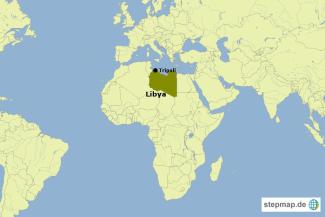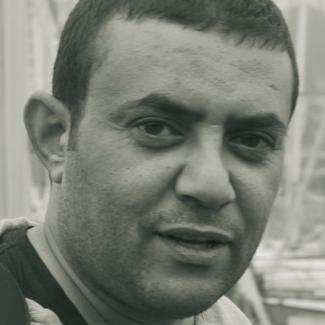Press freedom
Risky business

According to the Committee to Protect Journalists, 14 journalists have been killed in Libya since 1992, half of them in the past six years. Many more are missing. Another organisation, Reporters Without Borders (also known as Reporters Sans Frontières, or RSF) says many news organisations have left the country due to safety fears, leaving an “information black hole”.
It says that 20 journalists have been killed there since 2011 and scores more imprisoned, in an atmosphere of “complete impunity” for perpetrators. It gives Libya a ranking of 162 out of 180 countries in its 2019 World Press Freedom Index. In December, several incidents confirmed that 2019 was among the worst years for journalism in Libya. Among other incidents, two journalists were arrested in Tripoli for simply doing their jobs.
A month earlier, a journalist I will call J.* was snatched from the street and beaten over several days by armed militiamen. They were angry that he had posted a video on social media showing the immediate effects of an aerial bombardment of Misrata, a coastal town about 200 km east of Tripoli.
The journalist reported that the bombardment was carried out on the orders of Field Marshal Khalifa Haftar, commander of the Libyan National Army. Mr. Haftar supports Libya’s “House of Representatives” government, which controls the eastern and central parts of the country.
J., who has since managed to leave Libya, says the thugs who beat him objected in particular to his instant commentary during the bombardment. His report, accompanying live images he posted on Snapchat, said that “Mr. Haftar is bombing Misrata heavily. People are out running in the streets and don’t know what to do.”
Although there is no “share” feature in Snapchat and posted videos disappear after 24 hours, someone recorded J.’s post and circulated it via Facebook. Armed militias took offence.
“A friend called me early the next day and told me armed militia are searching for me,” J. told me. “I checked my Facebook messenger and found many messages saying the same thing. I went to a police station with a friend but it was closed. While my friend get out to check on a way to get into the police station, another car– a large vehicle with tinted windows – pulled up and a burly masked man carrying a gun got out. He dragged me roughly from my car saying, ‘So you gloat about Misrata, you dog.’“
There followed days of beatings as well as a trashing of his apartment, J. says. “They took turns beating me and each time I fainted they woke me up by pouring icy water over my head.”
Press-freedom advocates say this is not an isolated incident. “Fears for the safety of journalists in Libya increase daily,” says Najla Almsallati, a journalist and teacher at Benghazi University. “No one can depend on laws or human rights to protect them in the security chaos we are living through.” Fears of violence have become part of daily life for journalists, says Mourad Blal, a journalist and blogger. “When we write a text, immediately the anxiety comes.”
Sources
https://cpj.org/mideast/libya/
https://rsf.org/en/libya
Moutaz Ali is a journalist and lives in Tripoli, Libya.
ali.moutaz77@gmail.com
*Editors’ note: Because Development + Cooperation cannot independently verify the incidents described in this article, and because the journalist might be at risk, this article omits his name.








